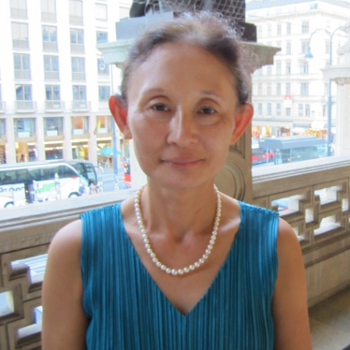It could have been a disaster. Entrusted to create a new production of Lohengrin at short notice after the original director, Katharina Wagner, withdrew her production, the house director of Oper Leipzig, Patrick Bialdyga, had to expand his shorter pandemic production to a full staging of Wagner’s most romantic and tragic opera. He chose to cast the epic story of good and evil, trust and betrayal in the context of a medieval European conflict into an intimate chamber drama that is focused on “six lonely people”, the main characters of the opera. Lohengrin and Elsa represent idealistic visions of humanity that are unattainable. Ortrud and Telramund are power hungry but frustrated. Telramund is blind, as he is deemed closed emotionally and intellectually. The King and his Herald are unwitting participants of the dispute between two couples. Biadyga also sees the characters as conflicted in loyalty and sympathy: Elsa is often drawn to Telramund out of guilt as she refused him in marriage; Lohengrin seeks to comfort Ortrud in her distress. All the characters are left in distress and disappointment at the end.
Marc Löhrer's sets consist of a room with three long tables and chairs that are moved about as situations change. It looks like a stylized courtroom where characters argue their cases. The room rotates on a turntable in Act 2 to reveal a spartan and pristine bedroom. It is on the bed where Lohengrin reveals Gottfried covered with feathers at the end of the opera. There are symbolic props such as a crown and a chalice. Swan feathers are scattered by Elsa awaiting Lohengrin, who enters carrying a swan in a bowl. The chorus is relegated to the background and never becomes part of the action – in the director’s view, they are like a Greek chorus, commenting and observing, but never initiating or propelling stage action. It is Ortrud who instigates the political intrigue as games of chess and poker, with others periodically moving a chess piece or holding a card. The simple production allows for fine details of music and lyrics to hold our attention. Personal interactions are clearly delineated, and we are drawn into the drama of extreme tension and excitement.
Focus on the six characters in an intimate setting requires strong personalities, with voice, acting skills and charisma. It was a great fortune that the musical performances attained a level of magnificence that is rarely achieved. Günther Groissböck, jumping in at short notice as Heinrich der Vogler, set the tone, his powerful and sonorous voice and confident stage presence immediately conveying authority and dominance. Telramund in this production may be blind both literally and figuratively, but Simon Neal’s strong yet nuanced singing revealed desperation and frustration mingled with a deep sense of honor, a word Telramund keeps repeating. Mathias Hausmann’s flexible baritone coped admirably with the vocal demands as well as the complicated stage action as the Herald. Kathrin Göring’s Ortrud, a key figure in the drama, looked stylish in a blue suit and acted with bashful arrogance. Her slender voice sometimes lacked impact; Ortrud’s crucial “Gott!” curse went for naught.
Gabriela Scherer, making her role debut as Elsa, was the major surprise of the evening. She was splendid as a clear and warm voiced heroine, capable of communicating innocence, distress, yearning and purity. Her soprano traveled Wagner's long arcs of melodies with smoothness and ease, never shrill or strained. Clad in a white bridal dress, she acted with grace and elegance. Klaus Florian Vogt debuted as Lohengrin with his ethereal, other-worldly tenor in 2002. Twenty years later, his voice remains fresh, clean and beautiful; it has also matured with depth and strength. Vogt’s stamina in the challenging Act 3 after dominating the heavily orchestrated ensemble scenes of Act 2 separates him from other tenors singing this role. His rendition of “In fernem Land” was breathtaking in its quiet beginning, culminating in a powerful declaration of his name and origin.
The Gewandhausorchester, conducted by incoming general music director of Oper Leipzig, Christoph Gedschold, was another major contributor to the musical perfection of the evening. They played with delicate balance and clarity, never overwhelming the singers. Orchestral passages were thrillingly dynamic and articulated. Lohengrin as chamber opera is an unusual concept, but Bialdyga's production makes sense and sheds new insights into some of the characters. Combined with musical excellence, it was a magical evening in Leipzig.




